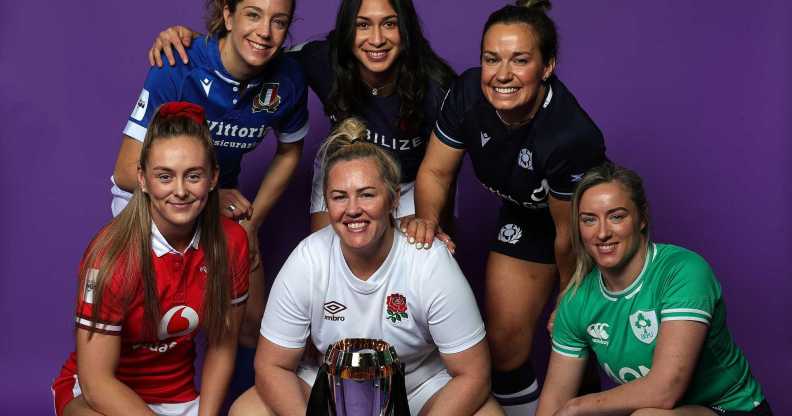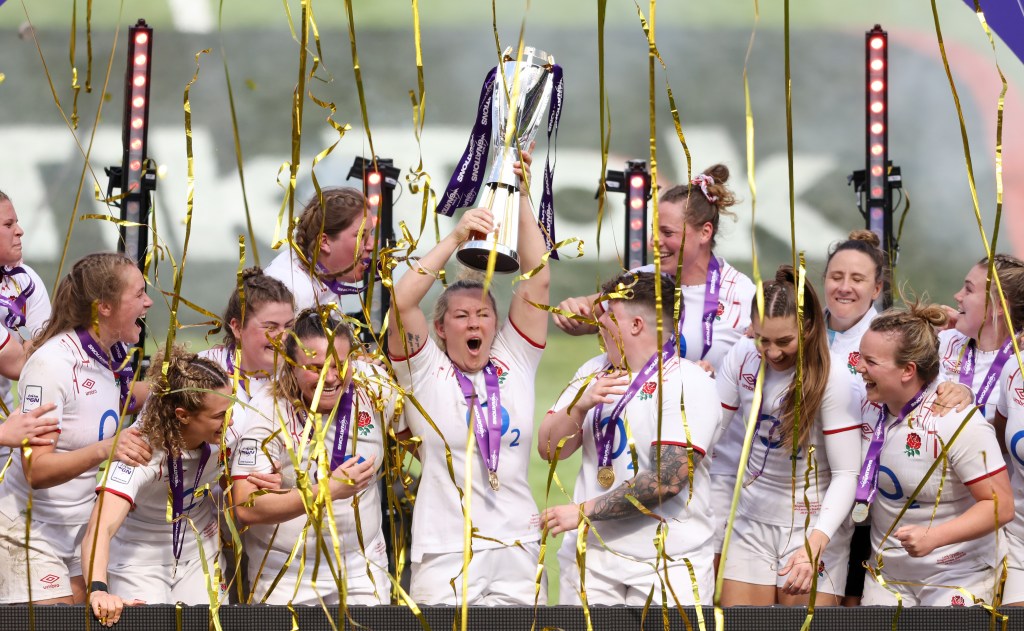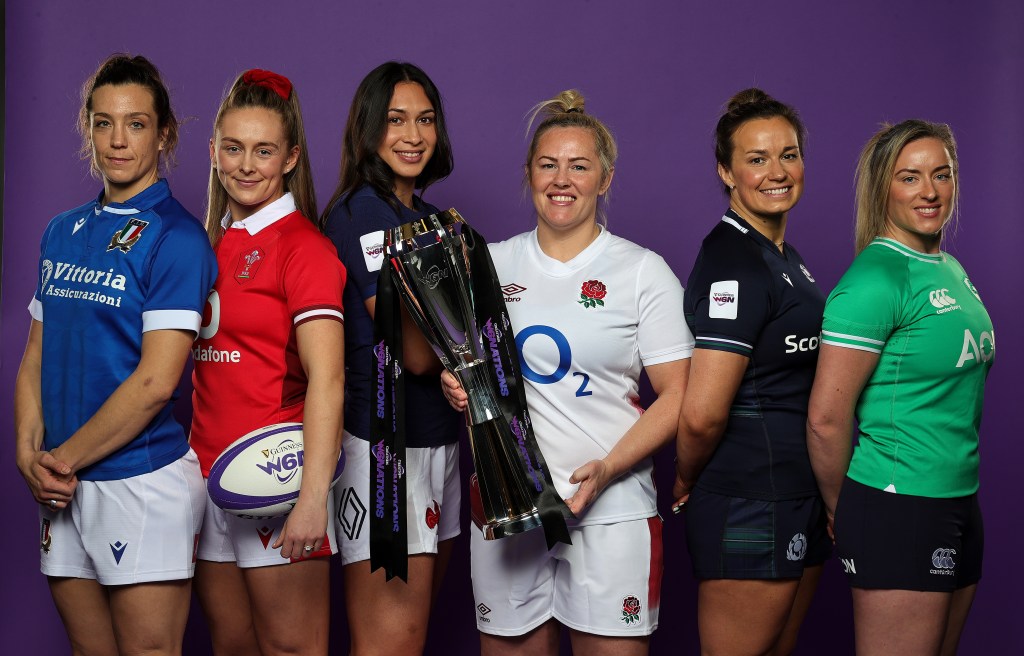Six Nations captains ready to take women’s rugby to next level: ‘I hope little girls look up to us’

The Women’s Six Nations captains have spoken about their optimism for growth in the game (David Rogers/Getty Images)
Ahead of this year’s Guinness Women’s Six Nations rugby, which started on Saturday (23 March), PinkNews attended the official launch event in London and spoke to some of the team captains.
This year’s tournament comes off the back of the highly successful 2023 season, with record attendance figures for women’s rugby union games and increased television and online views.
In 2023, England’s 38-33 victory over France at Twickenham secured the Grand Slam – all four other sides were beaten convincingly – and brought a record-breaking crowd of 58,498 through the turnstiles, beating the previous record of 42,579, at the 2021 World Cup final in Auckland, New Zealand.
There was also an estimated 28 per cent increase on the total of all five rounds of fixtures, as well as more than 100,000 new people engaging with the Six Nations social channels.
Discussing the huge crowd at Twickenham, England captain Marlie Packer, who plays for Saracens Women, told PinkNews: “As a player, that is what I want to be running out in front of. My goal is to help England, the Red Roses, achieve selling out Twickenham.”
Packer declared that everyone “wants to beat world records and I think you’ll see that this Six Nations”, adding that she is optimistic about what the coming season holds.
“The fan base is growing and growing. We, as players, just need to make sure we keep putting the product on the field, putting in the performances, backing them up week-in, week-out and growing each time.”
England open their defence of the Six Nations trophy against Italy, at the Stadio Sergio Lanfranchi, in Parma, on Sunday.

In terms of breaking records, the 2024 competition has already surpassed expectation. More than 5,000 tickets have already been sold for Scotland’s clash with England at Hive Stadium, in Edinburgh, on 13 April.
Scotland’s captain and Loughborough Lightning player Rachel Malcolm and the rest of the squad are “really excited” by the ticket sales and the potential to sell out the stadium in the future.
This year’s Six Nations will also be the first where the female players have their names on the back of their jerseys. Speaking to BBC Sport, Malcolm, whose team face Wales at the famous Cardiff Arms Park on Saturday, admitted she got “quite emotional” seeing her name on her shirt.
“It probably seems insignificant to people who watch sport. In women’s and men’s football, they’ve had it for as long as I can remember. That’s why we know so many women and male footballers, because they’ve had the names on the shirts,” she said.
“Women in rugby [have] been fighting against the tide, trying to grow our game and trying to get role models out there for young girls, young boys, whoever it may be.
“The difference having the names on the shirts will have, young girls who want to play, looking at [full back] Chloe Rollie and getting her name on the back of their shirt, it’s absolutely massive.”
Growing up, Malcolm didn’t have any female rugby role models. “I didn’t know women played rugby. I didn’t know I could play rugby,” she said.
“I didn’t know it was a thing. The opportunities you get from it are incredible and I want as many people as possible to experience that.”
France’s captain, Manaé Feleu, who plays for Grenoble Amazones, also had no role models and agreed that it’s important for the younger generation “to see women in sports, sports we are not used to seeing them in”, adding: “It’s cool for us to be able to normalise it for [them].
“I hope little girls look up to us and think that they can do it as well and that the rugby barriers that we can have with gender are going to be broken and won’t exist in the future.”

For Ireland’s co-captain Sam Monaghan – who holds the position with Edel McMahon – growing support for her team is not just something measured by the number of supporters in the stands but the real-life interactions they have with them.
She described how bus-loads of youngsters watch the team play, with parents often telling the players how excited their children by the experience.
“We take a lot of time after games to stay on the pitch and sign flags,” said Monaghan, who misses the team’s opening game in France on Saturday through injury. “Our aim is to inspire the next generation of players because the more people we have playing this game, the better the game will be in Ireland.”
The increase in interest in the women’s game is down to “how well women are doing in sport” and the increasing availability of games, Monaghan believes.
“It’s more accessible on TV and the internet [and] they’re being spread out around the country and bigger stadiums.
“They did a campaign in Ireland a couple of years ago – Can’t See, Can’t Be – and having role models more accessible to younger kids who want to go out and play the sport, get involved, get down to the games and support, has been a massive driver.”
How did this story make you feel?

